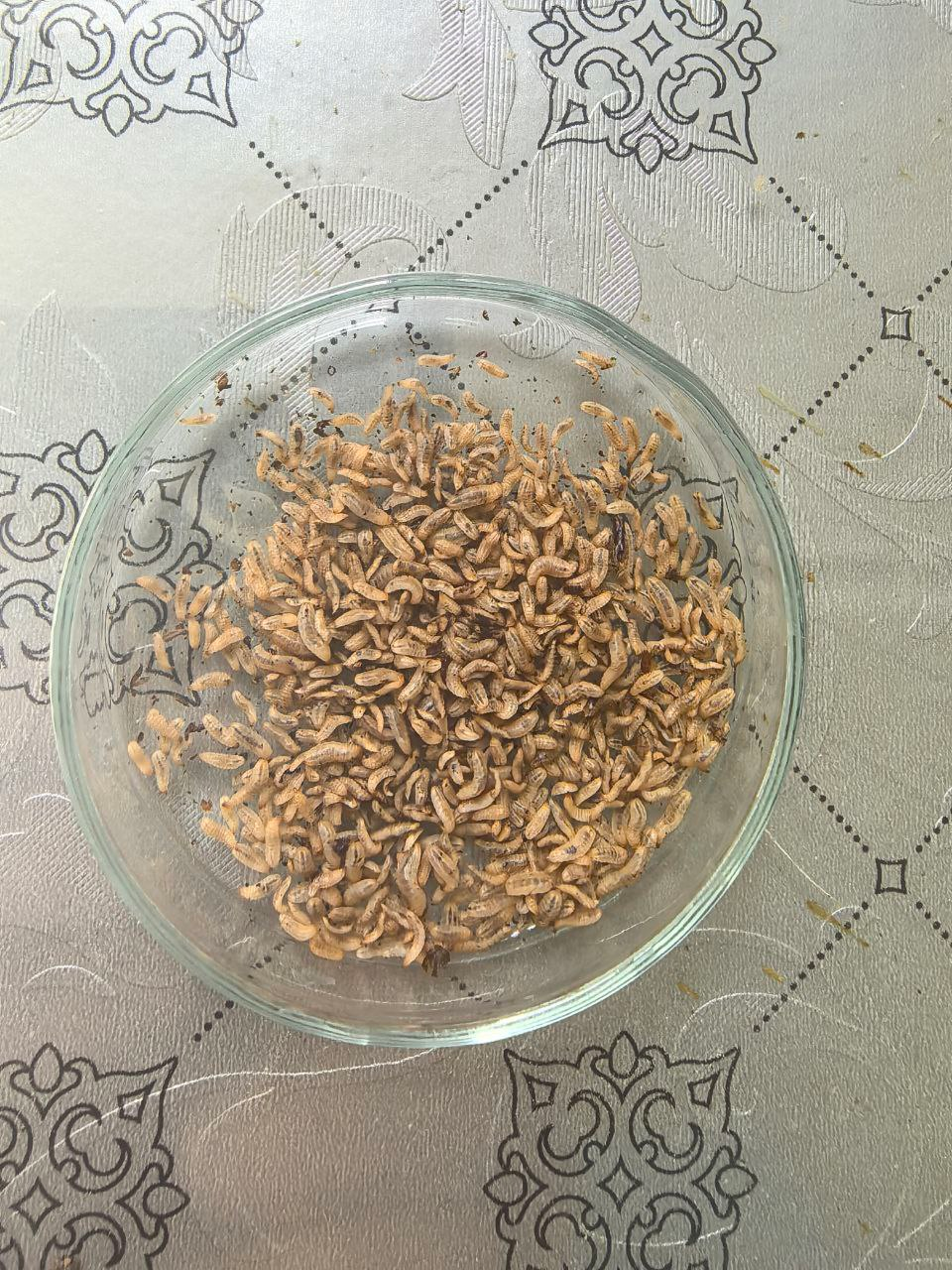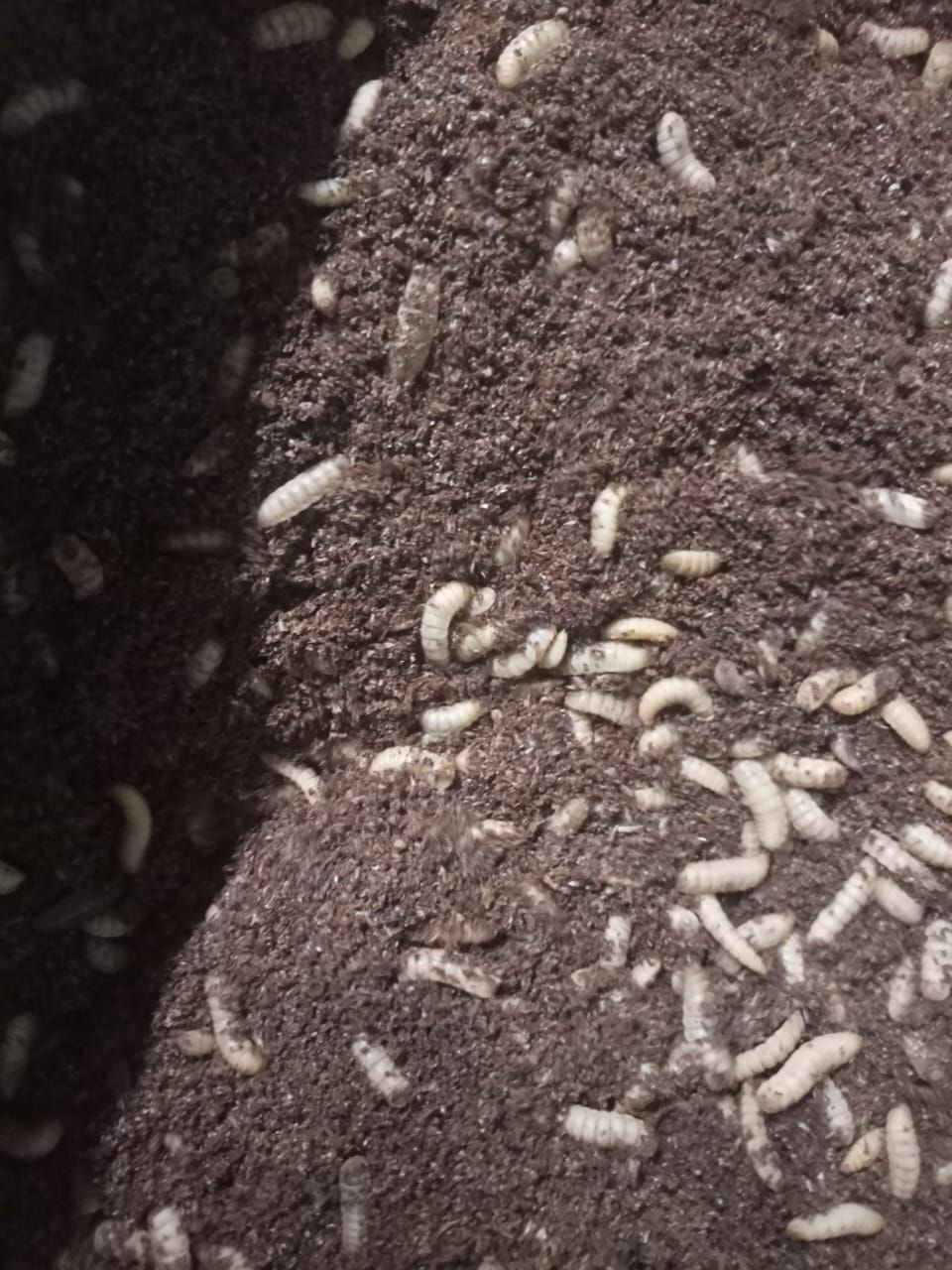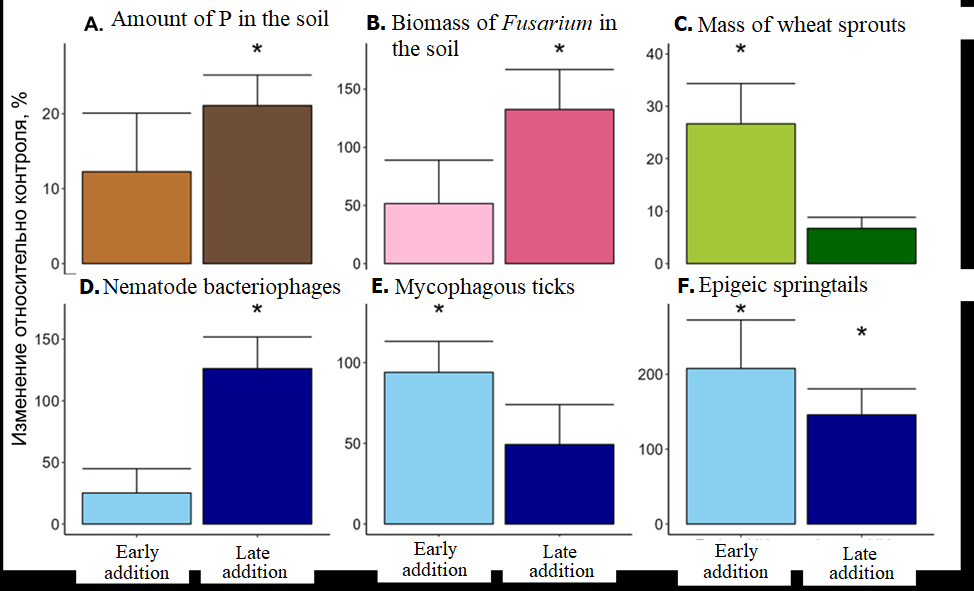
During the production of nutrient-rich larval biomass of black soldier flies (Hermetia illucens), a by-product called "zoocompost" is formed. Zoocompost is generally considered as a natural fertilizer that stimulates the growth and development of many agricultural plants, however, there are also indications of a possible antagonistic effect of zoocompost on soil pathogens. Due to the high degree of trophic relationship of some soil pathogens with soil invertebrates, the antagonistic effect of zoocompost may be associated with the effect of this additive on antagonistic soil fauna. However, quantitative data on the effect of zoocompost on soil mycobiota and fauna are fragmentary.

The staff of four laboratories of the A.N. Severtsov Institute of Ecology and Evolution of the Russian Academy of Sciences (IEE RAS), together with colleagues from four research institutes and the company "HEMA", conducted a complex laboratory experiment aimed at assessing the effectiveness of adding black soldier fly zoocompost, introduced at two different stages of winter wheat seedling growth (simultaneously with sowing or in the tillering phase), on the development of fusarium wilt of winter wheat, as well as on the chemical properties of the soil and the number of key groups of soil invertebrates (nematodes, mites and springtails).

“Despite the fact that the biomass of fusarium fungi increased by 132% with late application of zoocompost compared to the control, the incidence of fusarium wilt decreased by 8%. At the same time, the content of available phosphorus in the soil increased by 21%, and the number of bacteriophage nematodes and predatory nematodes increased by 106% and 65%, respectively, with late application of zoocompost compared to the control. The number of mycophage mites increased by 106% with early application, and predatory mites showed a fivefold increase with late application of zoocompost,” said Anton Goncharov, PhD in Biology, Senior Researcher at the IEE RAS.
Thus, the main mechanism of the influence of black soldier fly zoocompost is apparently the stimulation of saprotrophic mycobiota and an increase in the availability of soluble phosphorus for plants.
The work was published in the European Journal of Soil Biology, Anton A. Goncharov, Alexander I. Bastrakov, Olga L. Makarova, Kirill A. Mashkov, Valentina N. Maygurova, Mikhail M. Karpukhin, Maksim I. Kartashov, Natalia A. Kuznetsova, Ivan V. Sotnikov, Ivan D. Tsvelev, Azida K. Tkhakakhova, Renat V. Khusainov, Nina A. Ushakova, Volume 125, June 2025, 103734.
